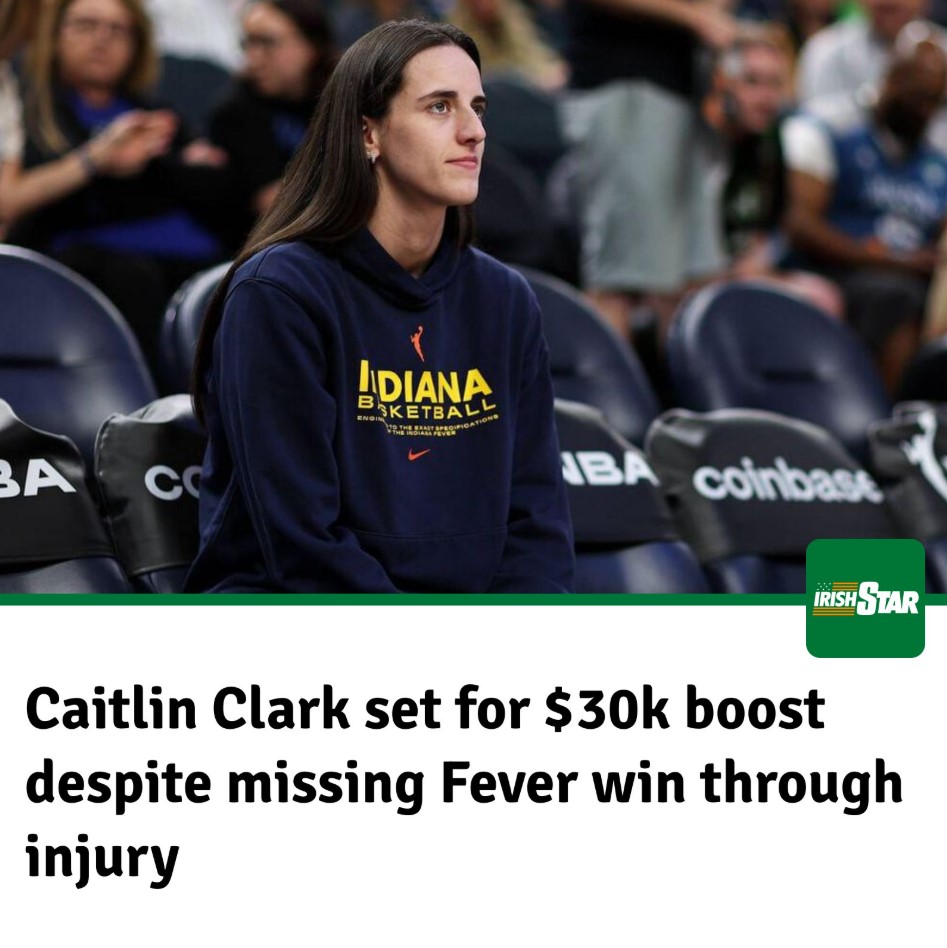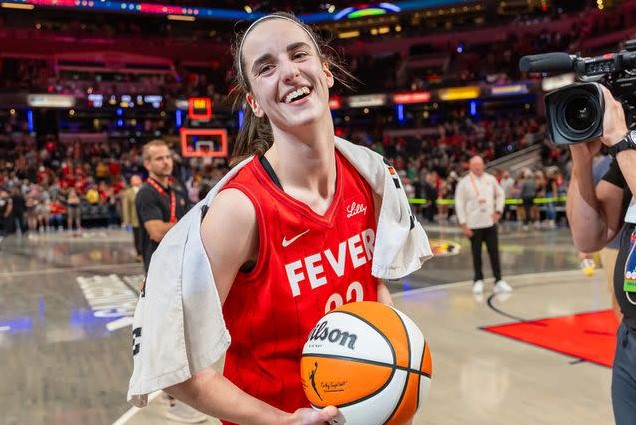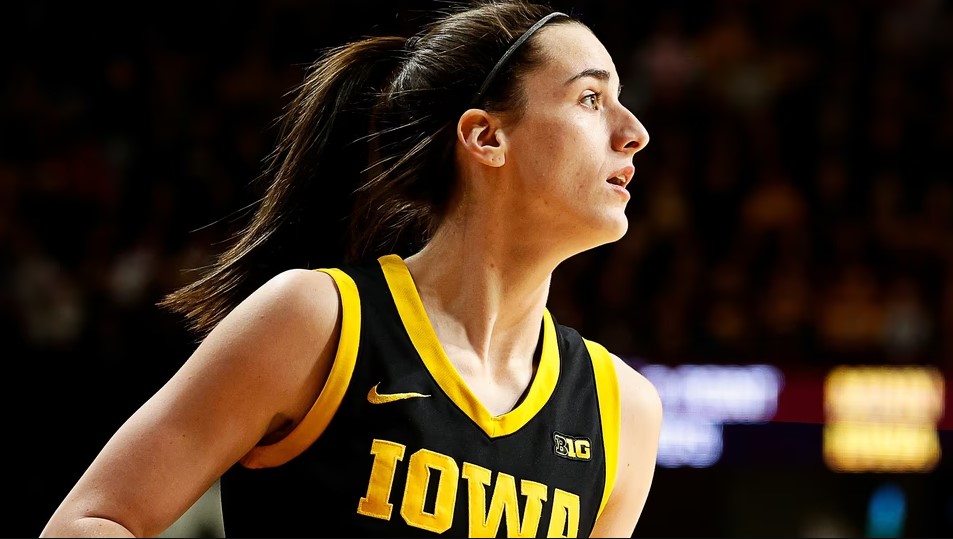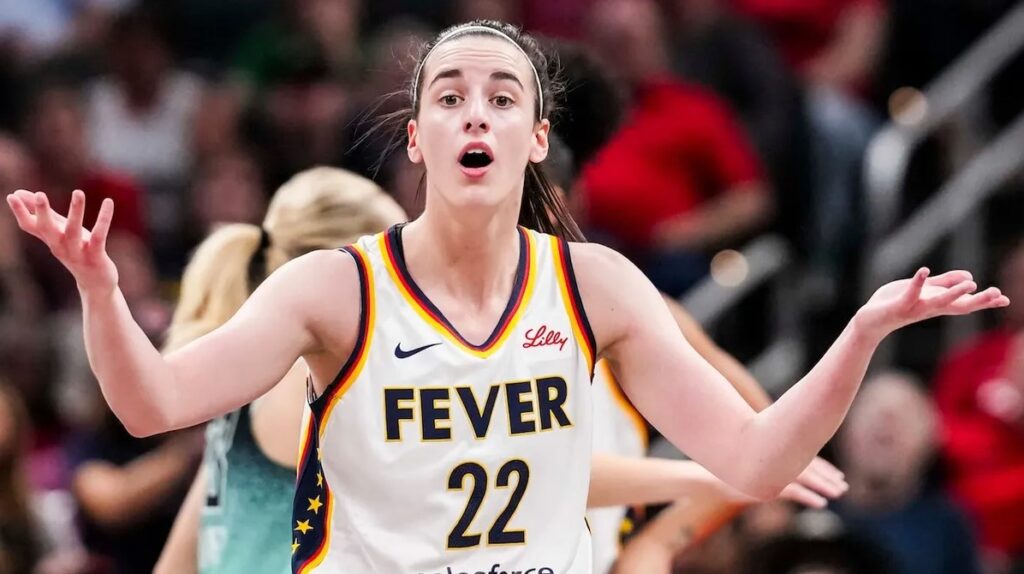Caitlin Clark’s Sweet Victory: $30,000 Bonus Despite Watching from the Sidelines
The world of professional basketball witnessed one of its most unusual championship celebrations when Caitlin Clark, the Indiana Fever’s superstar point guard, secured a hefty $30,000 bonus despite never setting foot on the court during the Commissioner’s Cup final. This remarkable turn of events unfolded on July 2, 2025, when the Fever defeated the Minnesota Lynx 74-59 in a stunning upset that nobody saw coming, especially without their most valuable player leading the charge.

Clark’s absence from the Commissioner’s Cup final was not by choice but due to a persistent groin injury that had already sidelined her for three consecutive games leading up to the championship showdown. The 23-year-old All-Star, who had been instrumental in the Fever’s journey to the final, was forced to watch from the bench as her teammates took on the formidable Minnesota Lynx, who entered the game with an impressive 14-2 record and were considered heavy favorites to claim the title.
The financial implications of the Commissioner’s Cup victory are particularly significant when considering the broader context of WNBA compensation structures and the league’s ongoing efforts to provide players with additional earning opportunities. Each player on the winning roster receives an equal share of the $500,000 prize pool, which translates to approximately $30,000 per player, making this bonus substantially more lucrative than the $20,825 that WNBA champions typically receive for winning the league’s ultimate prize.

Clark’s reaction to this pay disparity was both immediate and pointed, as she took to social media during the post-game celebration to highlight what she perceived as an inconsistency in the league’s reward system. Her Instagram livestream comments about the prize structure being “sick” reflected a growing sentiment among players that the WNBA’s compensation framework needs significant restructuring to better reflect the value that star players bring to the league.
The irony of Clark’s situation becomes even more pronounced when considering her transformative impact on the WNBA’s popularity and financial performance throughout the 2024-25 season. Her presence had single-handedly elevated television ratings, with games featuring Clark consistently drawing over two million viewers, numbers that the league had not seen in decades, and her absence from the final still managed to generate significant interest due to the storyline surrounding her potential return.

Despite missing the action on the court, Clark’s teammates delivered a performance that would have made their injured leader proud, mounting a spectacular comeback from a 20-12 first-quarter deficit to dominate the remainder of the game. The Fever’s resilience without their star player demonstrated the depth and character of the roster, with forward Natasha Howard stepping up to claim MVP honors with 16 points and 12 rebounds in a masterful display of leadership and skill.
The celebration that followed the victory was as memorable as the game itself, with Clark embracing her role as the team’s unofficial bartender in the locker room, serving drinks to her teammates while sporting a massive smile that conveyed her genuine joy at the team’s success. Her enthusiastic participation in the post-game festivities, despite her inability to contribute on the court, exemplified the camaraderie and team-first mentality that has characterized the Fever throughout their remarkable season.

This unusual championship scenario raises important questions about the nature of team sports and individual compensation, particularly in an era where star players drive so much of the league’s revenue and visibility. Clark’s $30,000 bonus, earned while wearing street clothes, represents more than just a financial windfall; it symbolizes the complex relationship between individual star power and collective team success in professional athletics.
The broader implications of this story extend beyond the immediate financial benefits to Clark personally, as it highlights the ongoing evolution of the WNBA’s business model and compensation structure. The league’s decision to make Commissioner’s Cup bonuses more lucrative than championship prize money reflects a strategic approach to creating additional revenue opportunities for players while maintaining competitive balance throughout the regular season.
Looking ahead, Clark’s experience during this Commissioner’s Cup triumph may serve as a catalyst for further discussions about player compensation, injury protocols, and the balance between individual star power and team success in professional women’s basketball. Her $30,000 bonus for watching from the sidelines represents not just an unusual payday, but a symbol of how the WNBA continues to evolve in its approach to rewarding players and growing the sport’s profile on the national stage.